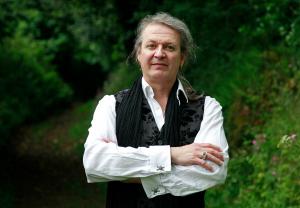You are here
Nick Groom
Nick Groom works in four related fields. First, cultural formation and authenticity, including attribution studies – this includes his work on editing, as well as literature and forgery, such as the book The Forger’s Shadow and several essays on the poet Thomas Chatterton. Secondly, the Gothic, focusing on historicist readings from the seventeenth century to the present which has led to his editions of key texts such as The Castle of Otranto and Frankenstein. Thirdly, national and regional identity, primarily in the UK and Ireland and in particular the popular symbolism of identities and communities, characterized by his book The Union Jack. Finally, intangible cultural heritage and environmental studies, which includes historicist studies of customs such as his book The Seasons, as well as ‘cultural environmentalism’ and its implications for health and well-being. In addition to publishing widely in both the academic and popular press, he is active in engaging pupils, students, and the general public in these areas through master-classes, public talks, and podcasts.
Recent Publications
-
Editor of Ann Radcliffe's 'The Italian, or The Confessional of the Black Penitents' (OUP, 2017)
-
Co-editor of 'Coastal Works: Cultures of the Atlantic Edge' (OUP, 2017)
-
Editor of Mary Shelley's 'Frenkenstein, or The Modern Prometheus: 1818 text' (OUP, 2018)
-
The Vampire: A New History (Yale University Press, 2018)
| # | Title | Description | Contributor |
|---|---|---|---|
| 1 | Why Read Frankenstein in 2018? |
Two hundred years after it was first published, Nick Groom explains the abiding appeal and... |
Nick Groom |

